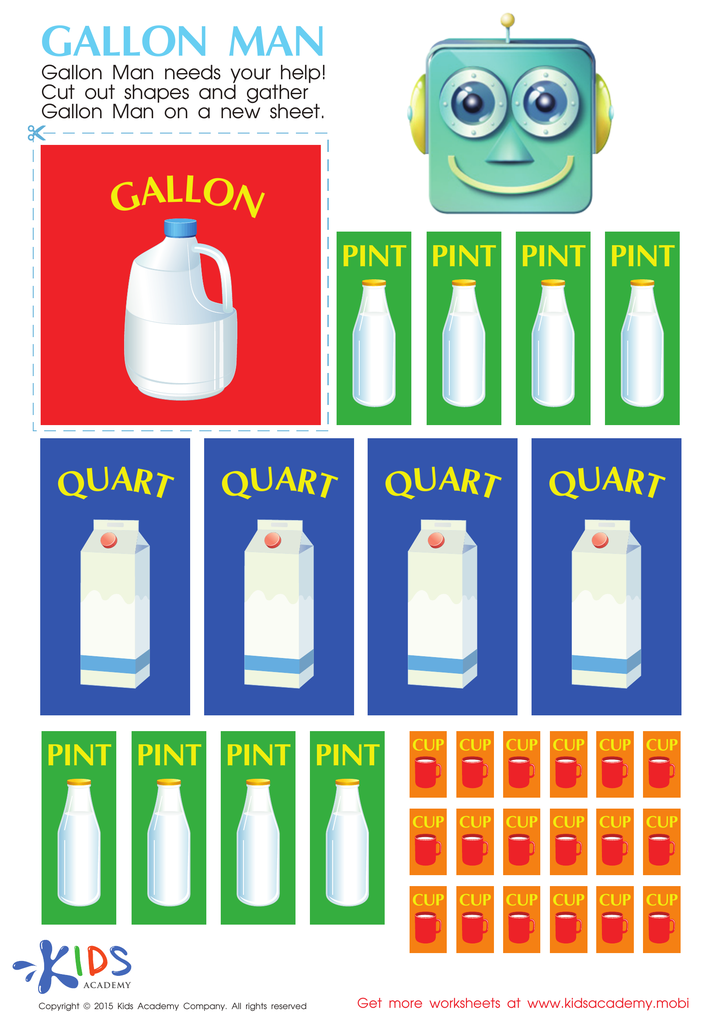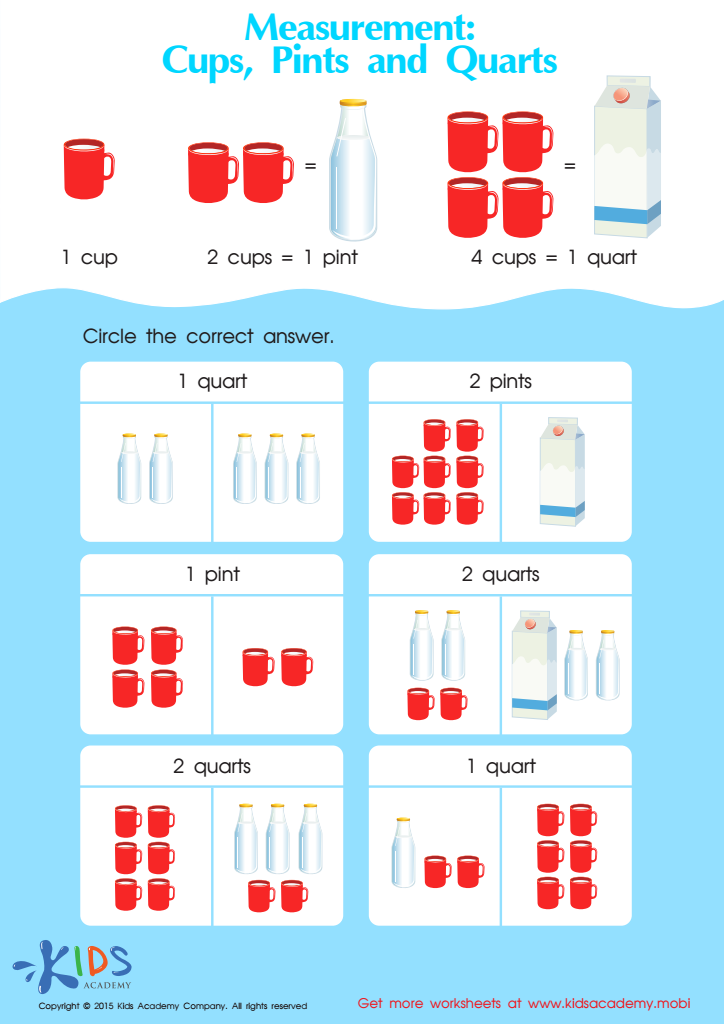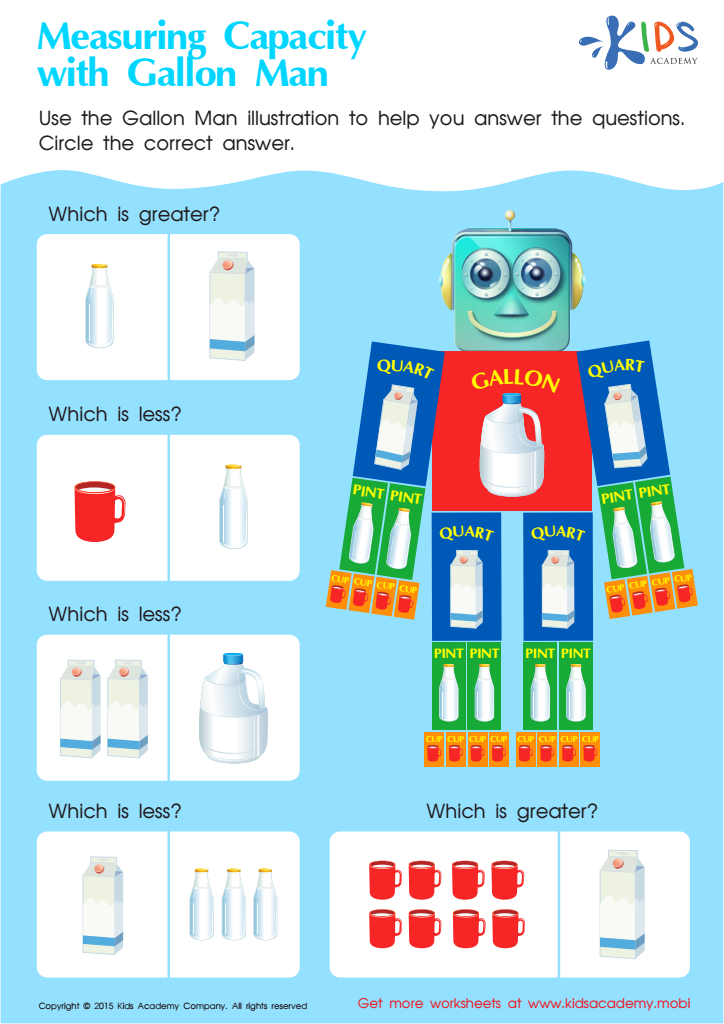Understanding measurement units Measurement Worksheets for Ages 4-7
3 filtered results
-
From - To
Unlock the wonders of measurement for young learners with our “Understanding Measurement Units” worksheets, tailored for ages 4-7. These engaging printable activities help children grasp essential measurement concepts including length, weight, and volume through fun, interactive exercises. Designed to align with early education standards, our worksheets encourage hands-on learning, critical thinking, and real-world application. Whether at home or in the classroom, these resources provide a solid foundation in math and inspire confidence in young mathematicians. Help your child explore and understand the world around them with our thoughtfully crafted measurement units worksheets.


Cups, Pints and Quarts With Gallon Man Worksheet


Cups, Pints and Quarts Worksheet


Measurement: Measuring Capacity with Gallon Man Worksheet
Understanding measurement units is a critical foundational skill for young children aged 4-7, as it fosters early math readiness, critical thinking, and day-to-day problem-solving abilities. When parents and teachers introduce measurement concepts, such as length, weight, volume, and time, children start recognizing and comparing the world around them in concrete terms.
Educationally, a grasp of measurement is an integral part of the math curriculum that supports subsequent learning in more complex areas like geometry, algebra, and science. For instance, understanding the concepts of 'bigger,' 'smaller,' 'heavier,' or 'lighter' prepares children for higher-level subjects where precise measurement is crucial. Practically, it empowers kids with the skills they need for everyday activities like following recipes, telling time, or comparing objects while shopping.
Moreover, learning measurement units enhances cognitive development and analytical skills. Kids practice observing, estimating, and making particular decisions based on quantifiable observations. Engaging activities with measurement make learning interactive and fun, thus promoting logical reasoning abilities in a playful manner.
Incorporating measurement lessons into preschool and early elementary education sets a strong educational foundation and fuels curiosity, problem-solving confidence, and a lifelong love for learning. Understanding measurements is more than just numbers; it's about making sense of the physical world efficiently and accurately.
 Assign to My Students
Assign to My Students
















